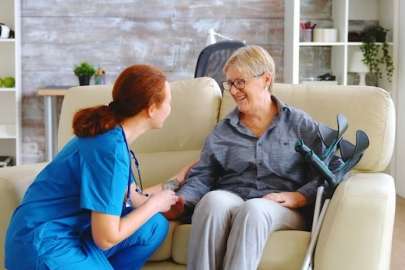As our loved ones age, providing them with the right care becomes a priority. The concept of elderly home care has become increasingly prevalent, offering a personalized and compassionate alternative to institutionalized care. In this article, we will explore the essentials of elderly home care, shedding light on what you need to know to make informed decisions about the well-being of your aging family members.
Understanding Personalized Care:
Elderly home care revolves around the idea of personalized care plans. Unlike one-size-fits-all solutions, caregivers tailor their approach to meet the unique needs, preferences, and health conditions of each individual. These personal care plans for seniors in Maine ensures that seniors receive the specific care they require, fostering a sense of comfort and familiarity.
Companionship Beyond Care:
Elderly home care goes beyond the realm of physical assistance. It emphasizes the importance of companionship in enhancing the overall well-being of seniors. Caregivers not only help with daily tasks but also engage in meaningful conversations, share stories, and participate in activities, creating a companionship that enriches the quality of life for the elderly.
Flexibility in Assistance:
Home care for the elderly offers flexibility in the type and level of assistance provided. Whether it’s help with personal hygiene, medication management, meal preparation, or mobility support, caregivers can adapt their services based on the evolving needs of the senior. This flexibility ensures that seniors receive the right assistance at the right time.
Creating a Safe Living Environment:
Safety is a paramount concern in elderly home care. Caregivers assess the home environment for potential hazards, implement safety measures, and ensure that seniors can move around safely. From fall prevention strategies to creating ergonomic living spaces, the focus is on maintaining a secure and comfortable living environment.
Involving Family in Care Plans:
Elderly home care encourages the active involvement of family members in the care process. Caregivers often communicate regularly with family to provide updates on the well-being of the senior, discuss any changes in care needs, and ensure that everyone is on the same page. This collaborative approach fosters a sense of trust and transparency.
Conclusion:
Understanding the essentials of elderly home care empowers families to make informed decisions about the care of their aging members. It is about embracing a personalized, companionship-focused, and flexible approach that ensures seniors receive the care they need within the familiarity and comfort of their own homes.
If you are searching for someone to care for your elderly parents just like you do, you have come to the right place!



